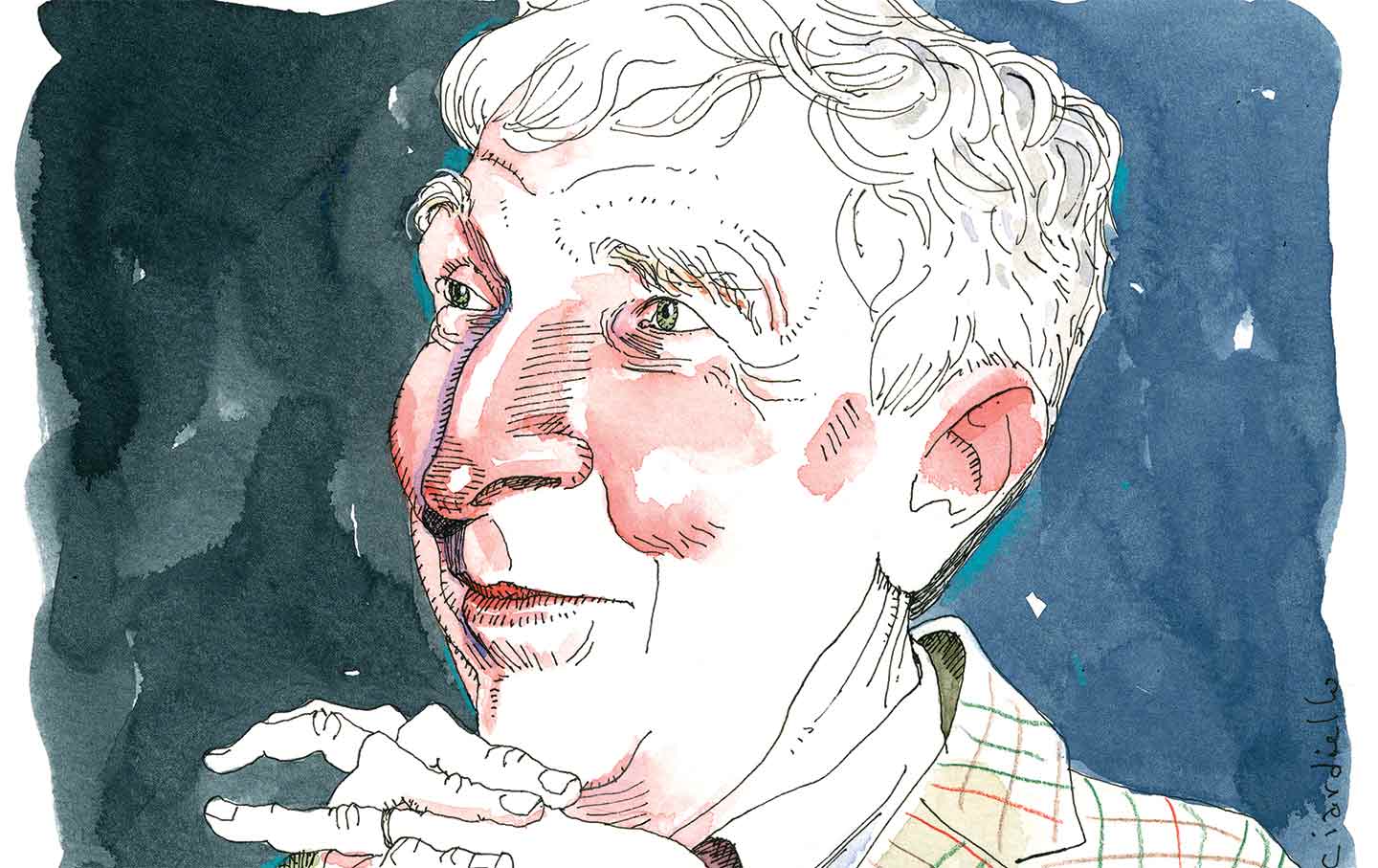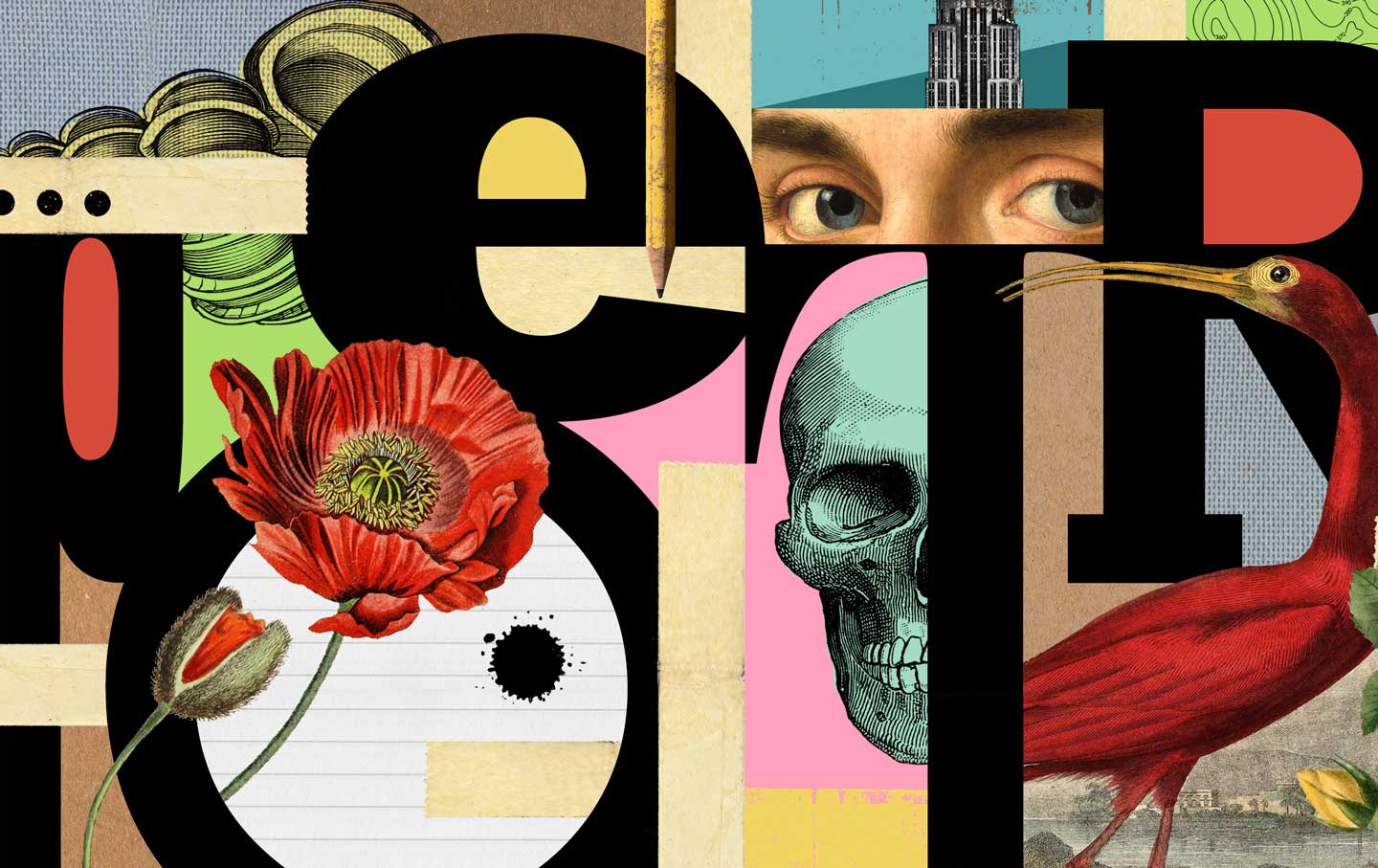Susan Taubes’s Uncanny Chronicles of Domestic Hell
Her previously unreleased fiction—a novella and short stories—in Lament for Julia peek into the banal and nightmarish travails of married life.

La Nuit (Night), Henri Fantin-Latour, 1897.
(Photo by Art Images via Getty Images)Reading Susan Taubes’s fiction can be uncanny: Mired in the morbid worlds she conjures, a reader is liable to feel feverish. Her stories blur reality and hallucination, cut by moments of crisp clarity. She smothers us through claustrophobic renderings of domesticity: scenes of marriages gone sour, affairs that unravel, and the profound loneliness not in spite of but because of the presence of another.
Books in review
Lament for Julia: And Other Stories
Buy this bookFor decades after her death in 1969, Taubes was mostly overlooked, hidden behind the larger-than-life personalities who surrounded her. It’s telling that in researching this essay, I fell into rabbit holes about other people: her grandfather, the grand rabbi of Budapest; her father, a disciple of Freud who became a psychoanalyst at the University of Rochester; her husband, a charismatic scholar of religion who was himself the subject of a biography published last year; Susan Sontag, her close friend.
Taubes published only one novel in her lifetime. Though panned in The New York Times by an ungenerous critic when it came out in 1969, Divorcing was reissued in 2020 to wide acclaim, placing Taubes back on the map of contemporary American letters. At once humorous and haunting, Divorcing is painfully attuned to the travails of wifedom and daughterhood. Taubes was lauded for her innovation of the divorce plot, which replaces the linear march toward union in the marriage plot with the ever-splintering paths of a final separation.
Lament for Julia, a collection comprising an eponymous novella and nine short stories written between 1961 and ’69, is now published for the first time. In its pages, readers of Divorcing will recognize the motifs that preoccupied Taubes in her novel. She is again found probing women’s attachments to the things that hurt them, be they men, marriage, or family life. Psychoanalysis is both a lens through which to interrogate this ambivalent relation and yet another object of ambivalence. But Lament for Julia is not merely a prelude to Divorcing; on the contrary, it reveals Taubes’s greater project as writer: that she, in addition to being a stoic chronicler of women’s travails in the mid-20th century, is a keen theorist of ambivalence.
Men emerge as the primary object of ambivalence in Lament for Julia. Some of these men are fathers who peskily analyze their daughters—that is to say, men without whom our female protagonists would not exist and yet whose presence nonetheless vexes them. In “Dr. Rombach’s Daughter,” Marianna, a 13-year-old girl, strives to develop an independent self beyond her father’s diagnoses. Dr. Rombach explains to Marianna in one scene, “Your coldness and indifference toward me…is simply a compensatory mechanism in overcoming your strong oedipal attachment to me.” A similar prognosis is proffered in “Swan”: “You are in love with me,” Dr. Sigismund, the warden of an asylum, tells his daughter Griselda. “But you will get over it.” Marianna and Griselda seek solace in writing, which produces a space of private fantasy, though not necessarily reprieve.
More often, however, the men who bedevil our female protagonists are their husbands and lovers. In “The Gold Chain,” Rosalie marries Sylvanus Thrush, a man who is “very shy and delicate as a child,” with “gentle oldish eyes.” As the story unfolds, he is revealed to be an effete man, a ghoul who manages to upset both in his frequent absences and his insipid and periodic presence. Rosalie seeks sexual gratification in a field outside of town with men who are nameless and cruel. At the story’s end, with Taubes’s characteristic touch of absurdist magical realism, Sylvanus shrivels to his death as Rosalie gives birth to a baby whose father is unknown. Wandering the streets alone with her baby in a basket, she is mocked by the townspeople and eventually driven mad.
“Medea,” a modern rendering of the ancient Greek tragedy, follows Isabel Marston, a woman who murdered her two children after her husband, an art collector, left her for another woman. “You don’t understand,” she says to two doctors during an interrogation.
“Nothing touched him. My life was in his hands. I could not even plead, it mattered so little to him; less than one of those rare objects he’d risk everything for, not because he wanted it to keep and enjoy but only for the prestige of the acquisition and the profit he’d make in reselling it. He bought only to sell. And I mattered to him even less. He wouldn’t even see what he had done to me. He couldn’t see.”
Isabel’s act of violence and plaintive cry to be seen throw the dissatisfaction of romantic attachment into sharp relief. Men… can’t live with them, can’t live without them.
“Lament for Julia,” the eponymous novella, is the collection’s most lengthy treatment of a woman’s ambivalent relationships to the men in her life. It closely follows the life of Julia Klopps from childhood into middle age. She is a rather nondescript protagonist in many ways, born in an unspecified Central European city to a family that is wealthy enough to afford help but not fabulously moneyed. Upon first encounter, the most striking part of the novella is not Julia herself but the narrator, a sort of spirit—a split consciousness born of Julia’s self-alienation, a callous voice that personifies the societal norms that press in upon her—that alternately observes, manipulates, and possesses Julia. But as her biography is gradually revealed, Julia becomes compelling in her anonymity. We are drawn to her precisely because she is an archetype—a woman whose trials evoke hazy, nightmarish recognition. While her mid-20th-century afflictions are not quite our own, echoes of her pain reverberate in the present.
At the age of 15, Julia, then a virgin, begins to indulge in violent sexual fantasies. She is flattered by the attention of a soldier, Bruno, at a Christmas party and follows him outside for a drink. When he leads her to a hotel, she finds herself unable to leave–not because he is forcing her to stay, but because she feels beholden to her initial expression of consent. “For all her innocence Julia knew where it would end. Yet how could she refuse to quench his thirst, especially since it was her irresistible charm that reduced him to this helpless state?” The sex, when it finally transpires, is debasing, and Bruno disappears despite his promises to call her in the morning.
A number of years later, Julia eventually marries Peter Brody, a man who is mostly inoffensive except for the fact that he is meticulously overseen by two overbearing aunts and makes peculiar sexual requests (“usually he was content to fart in her hand”). The doldrums of family life become her biggest trial. The all-seeing spirit narrates, “Often as I watched Julia set the table, I reflected with a certain horror that every day for the next twenty or thirty years she would be going through exactly the same motions, distributing the knives and forks, the wine glasses to the right and the crystal salad bowls to the left.” Soon, Julia spends every evening losing herself in gin and solitaire.
Popular
“swipe left below to view more authors”Swipe →When Peter leaves for a work trip, Julia takes on a much younger lover, the capricious Paul Holle, who affects indifference one moment and vengeful jealousy the next. Paul reawakens a part of Julia that had been deadened by marriage: “She wanted Paul Holle, all of him always, to hold him, to feed him, wash him, turn him inside out, cut him up, eat him alive, bear his children, sail the high seas, live ten lives with him, be everything for him, anything he wanted her to be.” But Paul will not save her. Peter returns two weeks later, and Paul departs without saying goodbye.
Relating the tale of Julia’s affair, the spirit muses: “Have I made too much of it, Julia’s one great passion, when it is just another banal story?” It’s true, there is nothing particularly surprising about a dull marriage that drives a woman into a torrid affair. But the banality, of course, is the point.
The unsparing honesty of Taubes’s fiction invites readers to look for themselves in her pages. Leslie Jamison divulges in her New York Review of Books essay on Divorcing that she read the novel in the aftermath of her own divorce. She found herself looking in the novel “for hope, for diamonds in the ash heap of its pain.”
I myself deliriously scrutinized my own relationships after downing Taubes’s oeuvre over a few frenzied days: I wondered if I was doomed to enact the archetype as I played back the rhythm of relationships that worked and ones that didn’t. Was I simply repeating a pattern that has failed me in the past, the one that entraps the women of Taubes’s fiction? Is the comfort offered by stable domesticity merely a facade?
But returning to Taubes in a more sober state, I realized that to read her for her relatability is almost to miss the point. It neglects the thoroughgoing weirdness of her fiction–a weirdness that resists our attempts to map ourselves onto her protagonists.
The cultural theorist Lauren Berlant observes that much of what falls into the bracket of “women’s popular culture” (which is to say, everything from so-called “chick lit” to the Internet blog True Wife Confessions) invokes “the female complaint.” “Everyone knows what the female complaint is,” they write: “Women live for love, and love is the gift that keeps on taking.” As Berlant points out, the problem with reenacting the female complaint is that the reliance on sentimental griping “cultivate[s] fantasies of vague belonging as an alleviation of what is hard to manage in the lived real.” The female complaint provides an outlet for airing frustration, in turn creating an “intimate public” that enables reattachment to an unlivable reality: the suffocating norms of family life, heterosexuality, and domesticity.
At first sight, Taubes’s stories share the markings of the female complaint: Love is poison, romantic relations a constant site of contestation. But the antagonism that roils beneath her fiction thwarts this identification. Even as we share her heroines’ woes and strive for connection with them, they refuse recognition and flee into phantasmagorical hinterlands. The reader begins to suspect that her own relation to the protagonists of Taubes’s fiction is, perhaps, the most ambivalent relation of all.
Ultimately, for Taubes, a frictionless relationship can only ever be a joke. The only love story in the collection that might be considered within the vicinity of “happy” is its shortest piece. Covering the span of a couple of days, “Easter Visit” narrates an affair between cousins. The entire story is a stack of one silly simile atop another incredulous scene. Entwined limbs are likened to “the tentacles of an amorous tropical squid.” “Water me!” the narrator’s cousin Hester “gasps” at one point. “Her head rolls off the bed, and I pee in her ear.” But even in this roguish little piece, a tinge of sadness lingers. Hester wakes up after one passionate night and cries, “I’ve never been so alone.”
More from The Nation

“The Paper” and the Return of the Cubicle Comedy “The Paper” and the Return of the Cubicle Comedy
The new show from the creators of The Office reminds us that their comedic style does now work in every “workplace in the world.”

The Strange Story of the Famed Anti-Fascist Lament “First They Came…” The Strange Story of the Famed Anti-Fascist Lament “First They Came…”
In his celebrated mea culpa, the German pastor Martin Niemöller blamed his failure to speak out against the Nazis on indifference. Was that the whole reason?

The Grand Delusions of “Marty Supreme” The Grand Delusions of “Marty Supreme”
Josh Safdie’s first solo effort, an antic sports movie, revels in a darker side of the American dream.

John Updike, Letter Writer John Updike, Letter Writer
A brilliant prose stylist, confident, amiable, and wonderfully lucid when talking about other people’s problems, Updike rarely confessed or confronted his own.

TikTok’s Incomplete Story TikTok’s Incomplete Story
The company has transformed the very nature of social media, and in the process it has mutated as well—from tech unicorn to geopolitical chesspiece.



